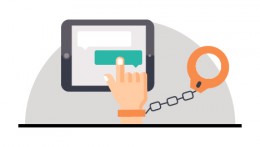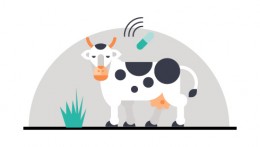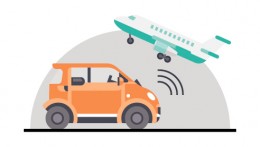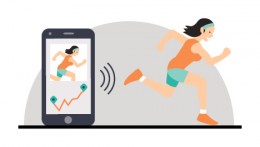1. Security
 From e-policing on your local beat to counter terrorism, combating atrocities seen recently in Paris, having the ability to track patterns of criminal behaviour with interconnecting machines will enable the prediction of who is likely to commit which crime, when and where. “You’ve seen the film Minority Report, well that will be possible in real life,” says Professor Rahim Tafazolli, head of the 5G Innovation Centre at the University of Surrey.
From e-policing on your local beat to counter terrorism, combating atrocities seen recently in Paris, having the ability to track patterns of criminal behaviour with interconnecting machines will enable the prediction of who is likely to commit which crime, when and where. “You’ve seen the film Minority Report, well that will be possible in real life,” says Professor Rahim Tafazolli, head of the 5G Innovation Centre at the University of Surrey.
2. Energy
 While smart meters currently isolate demand to target supply of electricity or water, for example, 5G will take this up several notches. Correlating energy use with the weather forecast, we will be able to harness the solar energy from remote villages in Africa, say, and supply it to colder locations, thus providing an income for villagers, utilising green energy and cutting harmful carbon emissions.
While smart meters currently isolate demand to target supply of electricity or water, for example, 5G will take this up several notches. Correlating energy use with the weather forecast, we will be able to harness the solar energy from remote villages in Africa, say, and supply it to colder locations, thus providing an income for villagers, utilising green energy and cutting harmful carbon emissions.
3. Agriculture
 The 2001 UK outbreak of foot and mouth is estimated as having cost £9 billion. Imagine the relief if we were able to track its path from one region to another? From sensor-chipped farm animals indicating optimum milk or meat production to targeted irrigation connecting to weather patterns, profitability and efficiency would both rise, as global farming supply and demand dynamics could be more closely monitored, in turn eradicating the risk that comes with extremes of commodity prices.
The 2001 UK outbreak of foot and mouth is estimated as having cost £9 billion. Imagine the relief if we were able to track its path from one region to another? From sensor-chipped farm animals indicating optimum milk or meat production to targeted irrigation connecting to weather patterns, profitability and efficiency would both rise, as global farming supply and demand dynamics could be more closely monitored, in turn eradicating the risk that comes with extremes of commodity prices.
4. Travel
 If driverless cars are rolled out in stages, starting with semi-automatic vehicles – think autopilot in aeroplanes – in dedicated areas, they will eventually move to being fully automated in towns and cities. Once latency or delay in vehicles reaches sub-one millisecond, government support will rise and the public will be reassured that most crash risk lies in the hands of humans. Add to that a windscreen sensor that picks up the latest restaurant offer as you drive into a new town.
If driverless cars are rolled out in stages, starting with semi-automatic vehicles – think autopilot in aeroplanes – in dedicated areas, they will eventually move to being fully automated in towns and cities. Once latency or delay in vehicles reaches sub-one millisecond, government support will rise and the public will be reassured that most crash risk lies in the hands of humans. Add to that a windscreen sensor that picks up the latest restaurant offer as you drive into a new town.
5. Leisure
 We’ve all been there, frantically pressing resend on text messages, trying in vain to Instagram a moment of sporting or musical history. No more. Using 5G, the internet of things is expected to connect a million devices per square kilometre. A test arena will be the 2020 Tokyo Olympics. Join 80,000 people uploading real-time video clips simultaneously, wearing smart glasses that instantly translate anything you see from Japanese into your native language. Now that’s entertainment.
We’ve all been there, frantically pressing resend on text messages, trying in vain to Instagram a moment of sporting or musical history. No more. Using 5G, the internet of things is expected to connect a million devices per square kilometre. A test arena will be the 2020 Tokyo Olympics. Join 80,000 people uploading real-time video clips simultaneously, wearing smart glasses that instantly translate anything you see from Japanese into your native language. Now that’s entertainment.
1. Security

2. Energy

